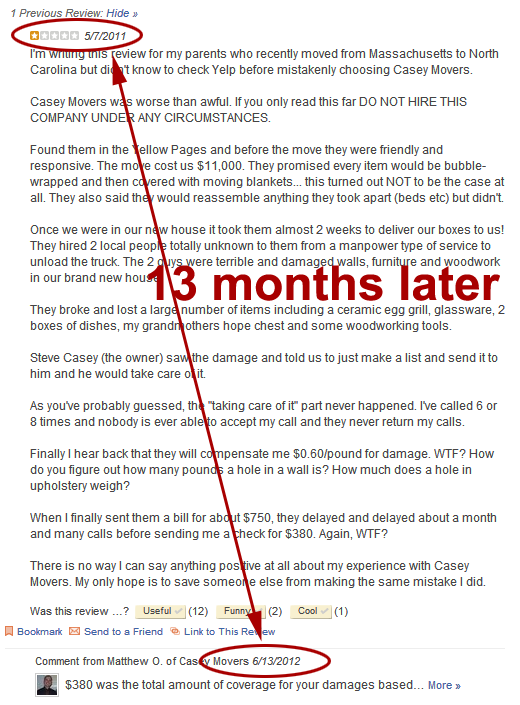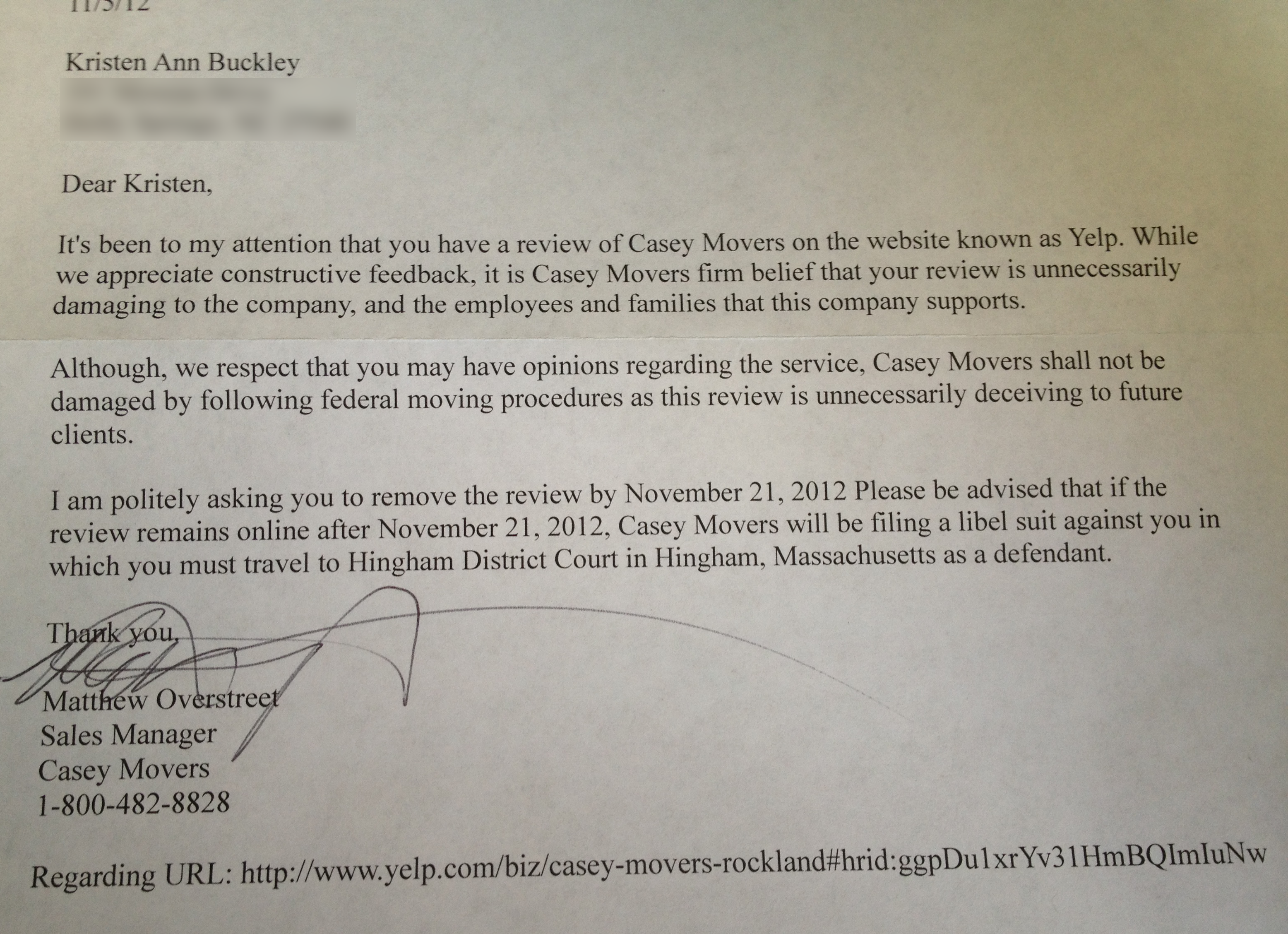
There are known knowns; there are things we know that we know.
There are known unknowns; that is to say there are things that, we now know we don’t know.
But there are also unknown unknowns – there are things we do not know we don’t know.
It’s possible that Don Rumsfeld was talking about online reputation management in the quote above (ok, he was actaually talking about the connection between Baghdad and terrorism, but work with me).
The last part of Rumsfeld’s quote is where many businesses currently are when it comes to dealing with their online reputation. They don’t know how much they don’t know.
Perfect examples of this continue to pop up from time to time, but last month I was “lucky” enough to have a front row seat at one that involved a very typical business who had no understanding of online reputation and how it has changed over the past few years. I will outline what happened and also how I believe they could have handled the situation better.
The Background
My in-laws moved from Massachusetts to North Carolina a couple years ago. They used a local Boston moving company who did a below average job of actually moving them into their new house. My wife was helping her parents on the day of the move and was frustrated by the sub-standard service and took the opportunity to write a one-star review on the company on Yelp.
It was not the first one-star review for the company, and moving companies in general suffer from an overall bad reputation. We thought that was probably the end of the situation.

Strangely, 13 months later the salesman from the moving company responded to the negative review. Yes, you read that right – 13 months later.
This is the first part of Rumsfeld’s quote coming to life. Matthew O. knew that there was a negative review online and knew he should respond to it. The problem was both in the timing and the tenor of the response. Any online reputation management person worth their salt will tell you that job 1 is to get an upset person “offline” where you can talk to them out of the spotlight. Not only did the company offer a canned and non-apologetic response, they never attempted to take the conversation to email or a phone call.
If that was the end of the story, it would be a missed opportunity for them, a run-of-the-mill mistake. You can probably guess that it’s not the end of the story.
The Escalation

This is a case of something that they know, but is unknown. They thought they knew what would happen, when they actually didn’t. I bet that the salesman was bemoaning the effect of having that one-star Yelp review show up right under their website for a search on their brand name and a friend suggested that he “just send them a nasty-gram”. That’s the exact advice you would expect to get and would probably have even worked 10 years ago. Times have changed.
One of the first things any web savvy marketer would do before starting down that path is to evaluate the target. Looking at the reach and authority of my wife reveals nothing special, she’s a very average web user. She has blogged in the past a bit, she has reviewed a handful of businesses on Yelp (some good some bad) and is active on Facebook with her friends and family.
Although I still feel the threatening letter was a misstep, I can see how they might go ahead and send it hoping to make the problem go away.
I would have recommended a very different strategy. Why not apologize at Yelp and then ask the aggrieved to email you for further conversations. At that point I would have sent an iTunes gift card or an Amazon gift certificate with a note that the moving business is hard and sometimes hiring help at the other end of a long-distance move can be a crap shoot, but accept the gift card as an apology and know that we’re trying to improve our service with every move. That’s it. At best they retract the bad review. Maybe they append the review that you went out of your way to make it up to them. Worst, you blew $50 – $100 on a customer that still hates you.
What their opposition research hadn’t told them was that their target was married to a guy that works on the web everyday and attempts to manipulate it in a way that favors his clients. That was a critical mistake, because they were about to find out about the dreaded Streisand Effect. When I took to my blog and wrote about what was going on, it took off. A few days later it hit Reddit, The Consumerist, TechDirt and even the Popehat legal blog.
What was a small footnote to a company a week prior now became a week of mocking at the hands of a merciless web crowd. The web hates bullies, and will generally rally around the person getting bullied, and that was certainly the case for me. In one week my blog post had been viewed over 100,000 times. Those people then took out their wrath with additional reviews over at Yelp and so many posted at the company’s Better Business Bureau page that it was pulled (and is still not appearing as of today).
The Ending
During the entire time of the Internet ORM storm, the company said nothing public. I know that’s a common strategy, but I generally disagree with it, it means you can only play defense.
My wife doesn’t have to worry about the libel lawsuit because Yelp removed her review because they said she wasn’t involved in the move directly (although she was). So I guess in one very small way the moving company got what they wanted, but the price was very high. The problem is that they still have 4 one-star reviews showing on Yelp and now they have about a dozen new listings that show up when you search for them by brand name that outline the story I just shared.
The Lesson
You never know who is on the other end of your nasty-gram letter anymore. A person only has to be influential in one tiny way to hurt your company. It’s always better to take the high road and try to make the unhappy customer love you rather than give them a reason to spread bad news about you.
If you’re interested in reading the whole story of threats, astro-turfing reviews, power struggles, and second thoughts you can catch it at my personal blog.








